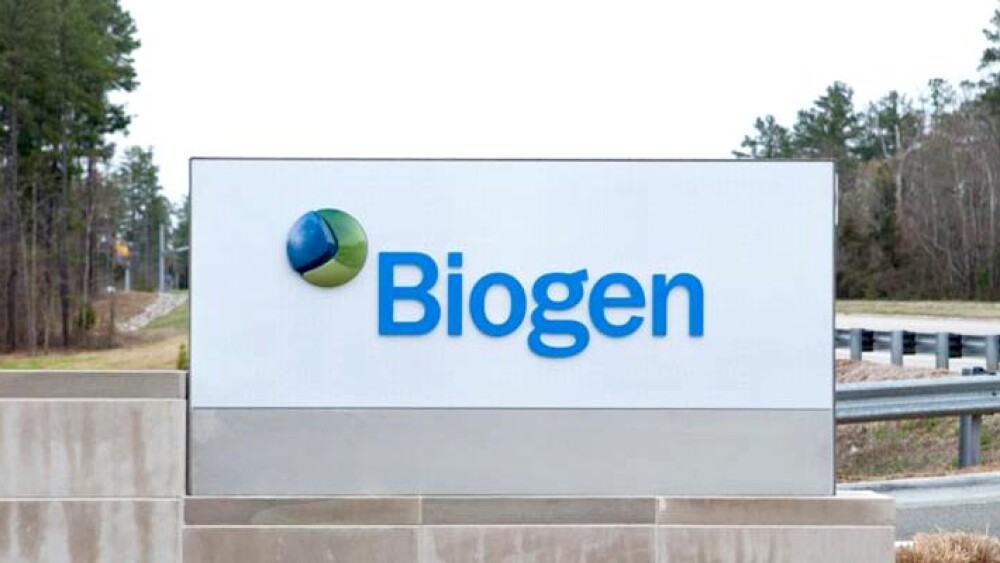February 16, 2016
By Alex Keown, BioSpace.com Breaking News Staff
NEW YORK – Biogen demonstrated its continued support for finding and developing treatments and a cure for ALS with a $5 million donation to Target ALS Foundation.
The donation was part of a challenge to other pharmaceutical industry leaders to fund a $20 million research effort into finding a cure for the ALS (amyotrophic lateral sclerosis), also called Lou Gehrig’s disease. Since its discovery more than 150 years ago no effective treatment has been discovered, however there has been some hope in stopping or slowing the progression of the disease due to recent progress in biological, genetic and clinical research.
Manish Raisinghani, president of Target ALS Foundation, told BioSpace that his organization was very excited about Biogen’s commitment to the ALS research. Biogen’s donation will support ALS research supported by the foundation. Raisinghani said one unique quality of Target ALS is its collaborative efforts to work with the pharmaceutical industry as well as independent researchers working on “consortium based projects.” Funding from companies like Biogen will also enable Target ALS to sponsor “young talent” supporting their transition to working independently in their own labs on ALS treatments, Raisinghani said.
Currently Target ALS is funding about 52 independent researchers, he added.
ALS (amyotrophic lateral sclerosis) is a progressive neurodegenerative disease that affects neurons in the brain and the spinal cord. The disease is usually fatal within two to five years of diagnosis. Patients with ALS eventually lose the ability to control muscle movement, which eventually leads to total paralysis and then death. Currently there is no known cure or life-prolonging treatment for the disease.
“For ALS patients and their families, there is an urgent need that we get something done,” Raisinghani said.
Spyros Artavanis-Tsakonas, Biogen’s chief scientific officer, said in a statement the company has a commitment to ALS research and plans to continue to contribute to efforts to developing a treatment.
Cambridge, Mass.-based Biogen has a long history of working on treatments for ALS that included one experimental treatment failing in late stage trials in 2013. The failure did not stop the company from halting its research. Currently the company has one experimental treatment in its pipeline, IONIS-SOD1, which is in Phase I, according to the company website. The treatment, being developed in conjunction with Ionis Pharmaceuticals , will target a mutated protein called superoxide dismutase (SOD1), which has been associated with the degeneration of motor neurons. The SOD1 form of ALS is the second most common form of the disease, accounting for up to 20 percent of familial ALS and 2 percent of all ALS cases, Biogen said. Researchers believe IONIS-SOD1 will reduce the production of SOD1 protein. The treatment is being evaluated to see if it can potentially slow the fatal progression of SOD1-ALS.
Raisinghani said there are more 20 pharmaceutical companies currently working on treatments for ALS, and here is a need for targets rooted in “strong biology rationale.” These companies include startups such as Yumanity, which announced $54 million in seed funding, and Genervon BioPharmaceutical, whose GM604 has been shown to slow down heterogeneous ALS progression in clinical trials. During a Phase IIa trial, GM604 showed the ability to modulate multiple protein biomarkers, including above normal TDP-43, back to normal ranges, restoring homeostasis, the company announced in September. The compound has received both Fast Track and Orphan Drug designations from the FDA for the treatment of ALS.
In many ways the recent ice bucket challenge, which helped raise more $100 million for ALS research, has spurred new innovations which are being explored by those coming clinical trials, Raisinghani said. “The ice bucket challenge raise awareness and valuable research dollars … but, $100 million will not get the ALS community from point A to a cure for the disease,” Raisinghani said. “There is still a real need of support from the community to finding a cure for ALS.”
Which, in some ways brings the focus back to Biogen, which has donated millions to other ALS research groups, in addition to Target ALS. In August 2015 Biogen teamed up with Columbia University Medical Center to map the genes and clinical traits of 1,500 people with ALS in hopes of finding a treatment for the devastating disease. The project is being funded through Biogen’s $30 million strategic alliance with CUMC and $3.5 million from the ALS Association.





